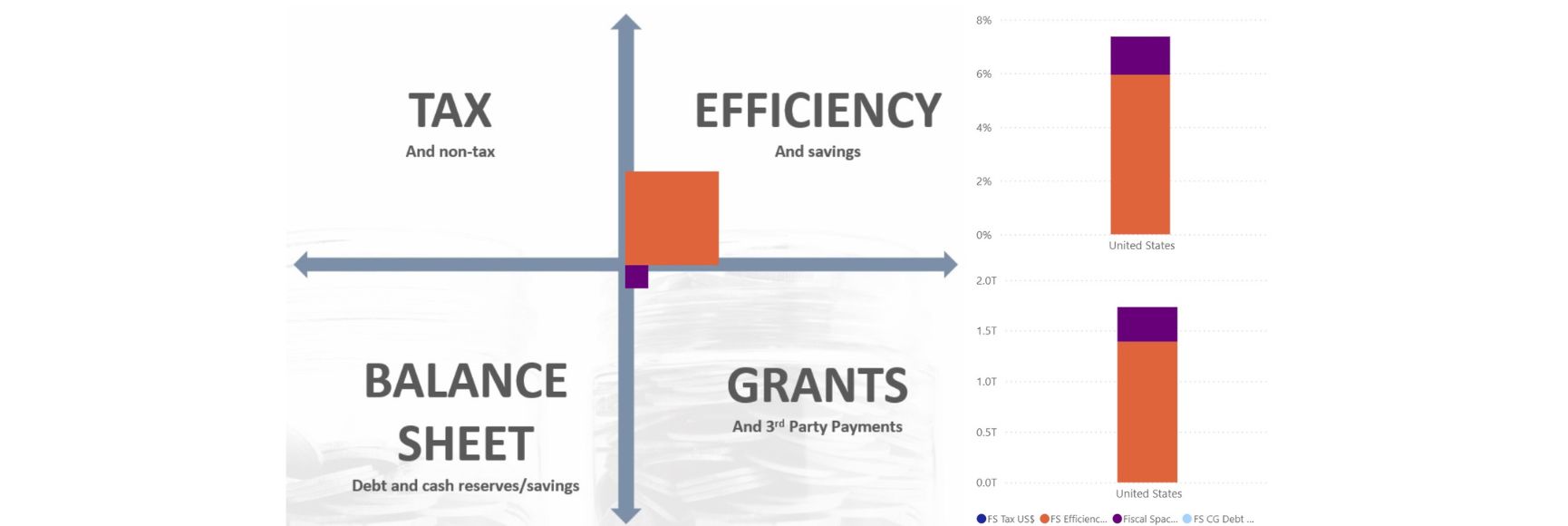The essential features of good public financial management and internal control (PFM/IC) are:
- Securing stewardship – this is the traditional concern of ministries of finance and is a feature of most (if not all) country financial systems - a core element is good internal financial control.
- Ensuring effective utilisation of public resources through well-designed policies and professional operational management across the civil service – essential to deliver effective public services with clear objectives and relevant financial and performance information.
- Being forward looking by having regard to risk and ensuring that commitments are not entered into which threaten the financial stability of public entities.
Feature 1 is adequate for budgetary and cash control purposes but not for a dynamic managerial environment focussed upon the achievement of objectives. Internal control should therefore extend to cover Features 2 and 3. Many countries claim they meet the requirements of Feature 2 but often there is little evidence of success. Similarly with Feature 3, many countries claim that they have introduced risk assessment but often that is limited to the risks related to IT and other systems because management objectives do not exist. Also, forward financial forecasts are often, at best, limited to a three-year planning cycle and a forecast of inflation. This is nowhere near adequate for effective financial planning.
Improving PFM/IC is a long-term activity. International organisations support its development, as do external auditors. For members/aspiring members of the European Union or recipients of EU funds as ‘neighbourhood countries’, improving the quality of PFM/IC is a specific requirement of European law, based on the principle of decentralized managerial accountability.
PFM/IC is not simply a financial reform. It also requires managerial reform, a need which has not been widely recognised. Delivery of quality public services requires (i) clear policy objectives, (ii) the efficient and effective utilisation of public resources that take risk into account, (iii) a financially informed policy maker coupled with (iv) well-trained, financially aware, and authoritative operational management. These conditions are not easy to achieve.
Establishing a managerial approach depends heavily upon the cultural tradition of a country. In many developing and transition economy countries, especially those that are highly centralised, ministers, deputy ministers and other political appointees in line ministries tend to make many operational, including administrative, decisions.
The EU principle of decentralised management means that this centralised tradition should be reformed for countries wishing to join the Union. Delegation of operational management decision making therefore should be established and, to support this, professionalization of the civil service and the adoption of an EU version of PFM/IC – public internal financial control (PIFC), are required.
Of recent joiners, Croatia has come nearest to applying PIFC effectively but still has some way to go. Many developing and transition countries in Europe, Africa and other regions rely heavily on centralized decision making, with their ministers involved in basic administrative matters such as signing payment schedules and approving leave arrangements for their officials.
International standards of internal control have been developed (viz. the COSO standards[1]). There are five such standards which relate to: the control environment, risk management, control activities, information and communication, and monitoring. Not all advanced countries formally apply these standards, but their use is often implicit, as in the UK. The need to apply these standards is recognised by the international representative organisation of country external auditors, INTOSAI.
Countries adopting the COSO standards should note that they contain unwritten assumptions about management, governance, and transparency. These are very important features although they are frequently not recognised. Often a PFM/IC reform focuses simply upon the staff positions and organizational structures associated with those standards, ignoring the benefits that arise from a better quality of management.
Applying PFM/IC (or PIFC) impacts upon budgetary and financial accounting arrangements as well as the relationships between a ministry of finance and line ministries. Managers require additional detailed budgetary and management accounting information to enable them to make judgements about financial performance, such as cost centre and cost driver analyses, and to control spending. They also need the authority to act on that information, although for some decisions prior approval at a political level and by the finance ministry may be required. This dilutes the authority of the operational manager raising the question as to who really is accountable for financial decisions.
Given the importance of the link with management, those engaged in implementing PFM/IC should ensure, as a priority, that an authoritative, quality well -structured operational management exists. Political clarity about service objectives is also essential.
In those countries with weak financial stewardship trying to adopt all the international standards from the outset is inappropriate. Such countries may want to start with a less advanced reform, namely the strengthening of public financial administration and internal control. A first reform step should be to focus on securing effective financial stewardship.
Other issues also need to be considered in developing the PFM/IC approach. For a full analysis see my book Public Financial Management and Internal Control published by Palgrave Macmillan. A free on-line version is available at https://lnkd.in/eWm4czdi.
[1] COSO: International standards of internal control advocated by the Committee of Sponsoring Organisations (COSO). https://www.coso.org/Pages/default.aspx.




